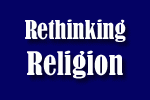One of my favorite sayings, which was from my first Zen teacher, is “We all live in a box, and the walls of the box consist of who we think we are and what we think life should be.”
There are some heavy-duty spiritual implications in the quote that I’m mostly going to skip here. The important point is that the box is, in a way, a contrivance; a fantasy; a delusion. Ultimately, there is no box. Yet we live in it anyway, and stepping outside of it is unthinkable for most of us.
Civilization itself is a kind of meta-box, or net connecting all the boxes, created by our collective projections and conditionings. Civilization can be understood as an intricate net of assumptions and agreements that allow us to live together and deal with each other in complex ways. This net has been crafted from ancient times, and each generation has added a little more to it. We are conditioned from birth to accept civilization as it exists in our time, and it’s so “normal” to us we often are oblivious to what a complex and astonishing thing it has become. It’s like air to us; we take it for granted.
Remember also that we humans are social creatures, wired to form associations with other humans to survive. And I mean “wired” in a physiological sense. Infants and small children deprived of social contact have been found to have abnormal brain development. Adults isolated from other humans will develop all kinds of psychological problems. We literally need each other to be who we are.
But let’s get back to civilization. Modern civilization is elaborately integrated. The web grows tighter and tighter. Our “normal” life, maintaining the box we live in, depends increasingly on very complex interconnections with the other boxes even for basic things like food and shelter, never mind Internet connection.
As recently as 150 years ago it wasn’t uncommon for someone to build a cabin in the woods on unclaimed property and live off the land. It may have been a nasty, brutish, and short life by our standards, but it was within culturally accepted norms of the time. There may be a handful of people today who could still do that, but for the enormous majority it’s not an option. Even if they had the survival skills, which most don’t, there’s not enough wilderness left to accommodate all the disaffected people of the world. And, frankly, the box most of us live in wouldn’t allow for it, anyway.
These days, in developed nations anyway, life in the box requires connection to the power grid and clean running water brought to us from distant reservoirs. We depend on commerce to make food and clothing available. We depend on an intricate, and often capricious, legal and financial system to create shelters we can live in. We are required to find some means of adding value to the commercial and financial systems to that we can receive credits (money) to exchange for what we need and want. And we are drawn like ants to honey to new communication technologies, so that we can interconnect with each other to our heart’s content.
This is the box we live in. This is who we think we are and what we think life should be. Our dependencies on each other are not negated by money — I paid for this! Nobody gave it to me! Indeed, the paper we carry in our wallet or the numbers in our bank accounts have value only because they are integral parts of our system of inter- dependencies. Otherwise, they would be valueless. And if we were challenged to cobble our own shoes, build our own shelters, or grow our own food, most of us would make a botch of it.
This also is why Ayn Randism and the “John Galt” pledge are so ridiculous. We cannot live for ourselves alone; it is not possible, whether we like it or not. We either live for each other, or we are cut off from civilization, and we die. People who think they really are living for themselves alone are oblivious to reality. (They also tend to be assholes, but that’s another rant.)
(And, seriously, if living for yourself alone is so all-fired important to you, why bother to reach out to other people and ask them to sign a John Galt Pledge on the Web? What this tells us is that Randism is a kind of romantic fantasy, and if that’s the box you live in you want other people to buy into the fantasy and reinforce it. That’s very human, and also utterly absurd.)
So let’s look at what’s been going on with civilization in our lifetimes. Even as the net grows tighter, ancient ethnic, racial and cultural boundaries are growing blurry. We’re literally finding new ways to form tribal associations, and the old ways rapidly are losing their function and significance.
Nations still play important functions in civilization, and I don’t see the phenomenon of the nation-state dissolving anytime soon. But it may be indicative of something that nations don’t seem to declare war on each other any more. Armed conflicts are waged by extra-national movements these days. I think this indicates a significant shift in the role of the nation in human civilization, although exactly where this is taking us is hard to say.
The changes occurring to civilization, many of which are being driven by rapid technological advances, are challenging the integrity of many boxes. If the box you live in depends on clearly drawn racial divisions, for example, the blurring of racial boundaries is very distressing. And people experience challenges to the integrity of the boxes they live in as existential threats. So, while some of us embrace modernity, others of us are recoiling in horror.
And this takes us to fundamentalism. The scholar Karen Armstrong defines fundamentalism as a “militant religiosity” that is a “reaction against and a rejection of modern Western society.” I would turn that around a bit and say that religious fundamentalism is a kind of social pathology that expresses itself as religion. Although the pathology comes in a religious package, the pathology, not the religion, is the driving force. I say that because, time and time again, we see that any teachings of the religion being used as the container are ignored if they conflict with the pathology.
By the same token, I say that current “movement conservatism” is a social pathology expressing itself as political ideology. Conservatism has taken on many of the attributes scholars associate with fundamentalism, such as the view that they are engaged in a cosmic struggle between absolute good and absolute evil. They also “affirm their identity by selecting doctrines and practices from the past,” one of the markers of fundamentalism in this review of one of Armstrong’s books. They’re adopting rigid doctrines about taxes and monetary policy, often without even a glimmer of understanding how taxes and the monetary system work. They accept the doctrines of the tribe because those are the doctrines of the tribe. Oh, and freedom.
It’s getting uglier and uglier because many people are living in boxes that are utterly out of sync with the way civilization really works these days. Eventually this will fade, but not in our lifetimes. Until then, we’re going to have to put up with lots of people who are raving and fearful and irrationally thrashing about in all directions because the box they live in is threatened by modernity. So be it.
One of the things that strikes me, over and over again, about the reactionaries calling themselves conservatives these days is the degree to which they are utterly oblivious to the interconnections. You’ve got a Republican presidential ticket made up of two guys born into wealth and privilege who see themselves as self-made men, and don’t understand why everyone can’t be as successful as they are. You’ve got the baggers in Medicare-paid power scooters rallying against socialized medicine.
And then there’s the “you didn’t build that” flap. You can’t explain to the baggers that the President was talking about essential infrastructure. They deny that business needs infrastructure. Build a nail salon and they will come, I suppose. I actually ran into someone on a Web forum who refused to believe that business needs stuff like roads and utilities. They built Las Vegas in the desert, didn’t they?
This morning’s rant was touched off by a comment on this page. JETHRO212 wrote,
The ironic thing is, if you listen to the entire Obama “You didn’t build dat” thing, it gets way worse, if you listen to the whole thing he goes way off into it wouldn’t even be possible to have a business without Government.
But … it really isn’t possible to have a business, as we understand business, without government. Currency? Government. Without government, we’d resort to a barter system; we really would be taking chickens to the doctor. Contracts? Without a legal system, contracts are worthless. Legal system? Government. Someone robs your store, you call the police. Police? Government. Without government, the only people in business are mobs and pirates. Civilization itself was built on the premise that somebody is in charge and makes the rules. In recorded history there has never been a human society that didn’t have some kind of government, even if just a tribal chief who got the honor by beating up all the other chief candidates.
I have a fantasy that all the Ayn Rand enthusiasts who want to “go Galt” be given a big tract of land somewhere and allowed to take whatever power generators, tools, and means to produce food they can carry, and then they can be on their own. And as long as they stay on the “res,” and didn’t interact with the rest of society, they wouldn’t have to pay taxes. They also forfeit all government benefits, of course. But they could build whatever they wanted and be self-made men (and, trust me, most of ‘em would be men) all day long.
I’d give it two years, tops.
[Originally published on The Mahablog, September 19, 2012. To read more about the boxes we live in, see Rethinking Religion: Finding a Place for Religion in a Modern, Tolerant, Progressive, Peaceful and Science-affirming World.]

